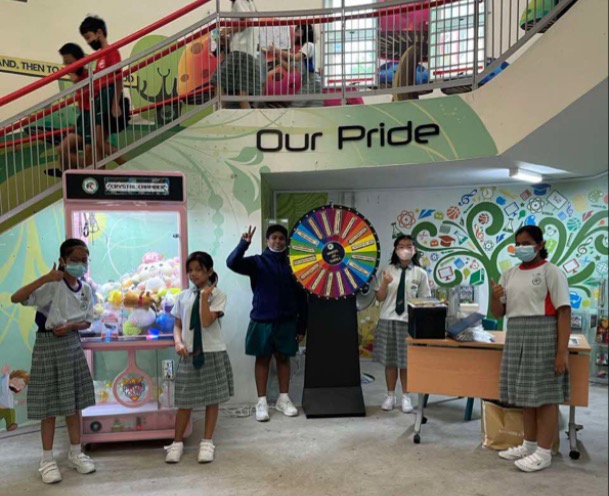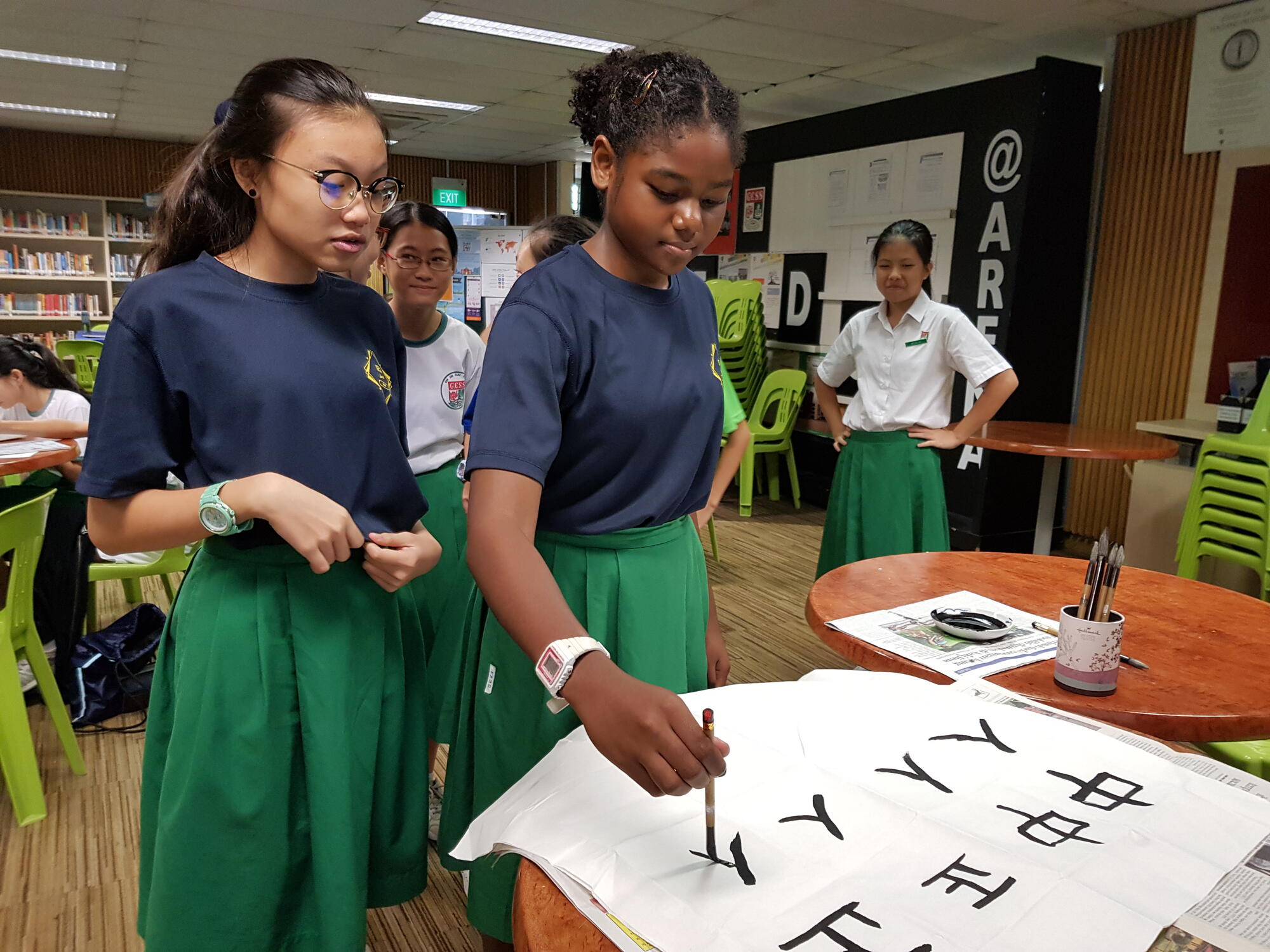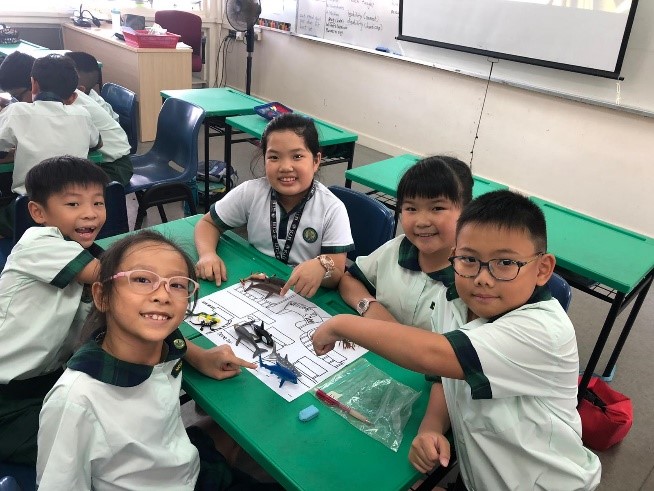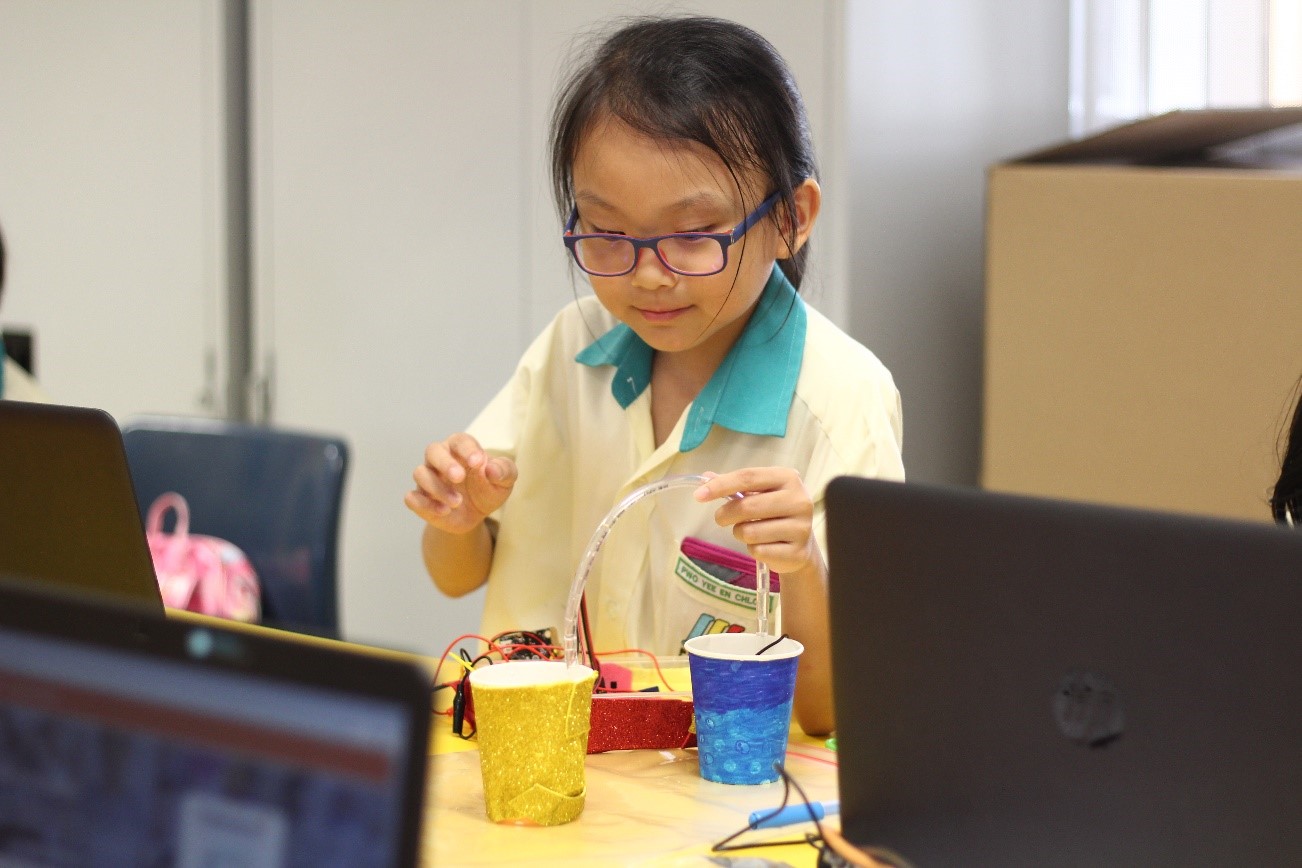Cultivating critical thinking: Chung Cheng High School (Yishun)
11 May 2020
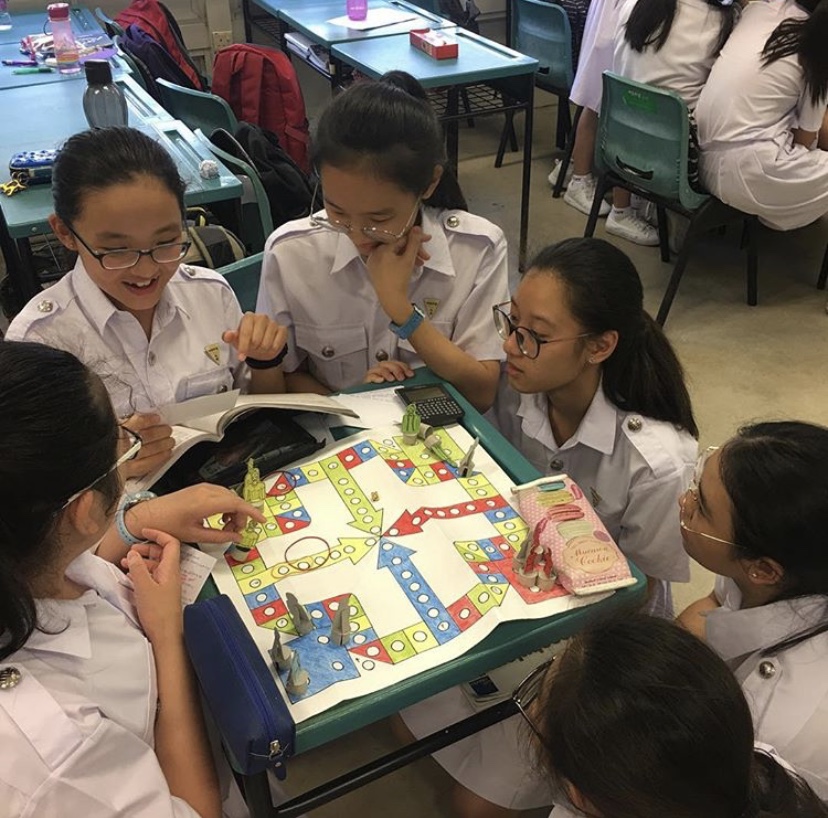
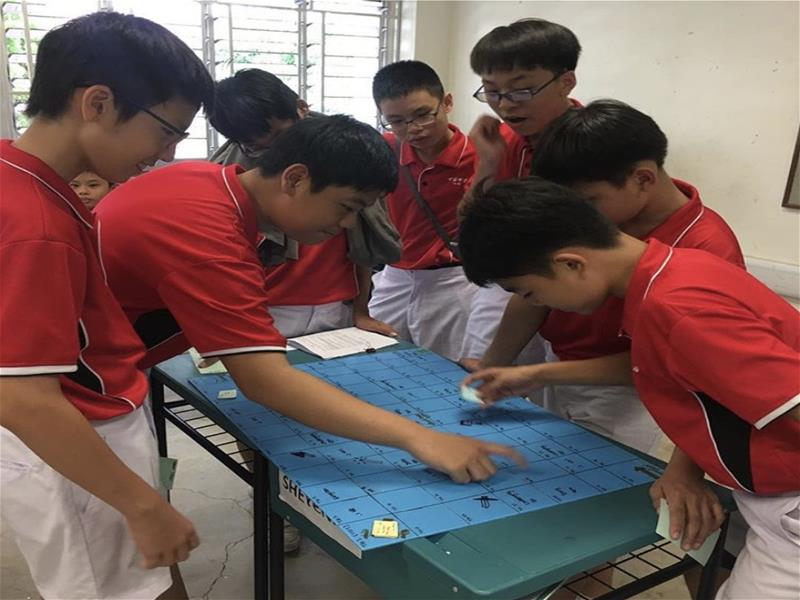
Students playing the History board games they had created.
Who
Sec 1 students since 2019
Sec 3 students in 2020
Why
Sec 1 and Sec 3 are transition years in the students’ educational journey, with Sec 1 students having just entered the secondary level from primary school after PSLE, and Sec 3 students having to choose their subject combos before doing their O-Levels. The removal of mid-year examinations will give these students the time and space to make better adjustment to their curricular demands and develop a greater interest in their subjects.
What
Mother Tongue Language
In 2019, the Mother Tongue Language teachers in Chung Cheng High School-Yishun (CCHY) used the freed up space for Sec 1 students studying Chinese to do extended teaching of DiZiGui – texts grounded on Confucius teachings to impart good Chinese morals and values. Students were given articles or audio books focusing on the theme of familial relationships that they had learnt about in DiZiGui and tasked to create picture books. Other projects involve creating posters, skits and in-depth research on related topics.
For the Malay language students, they were tasked to research on traditional Malay food and games and present their findings in class and after, using their findings, create their own personalised scrapbooks as a keepsake and reference material for other students.
Through these activities, the students were able to make use of the four language skills, namely reading, writing, listening and speaking. This not only made their language learning more relevant to the modern day context, it puts less emphasis on exams and results.
Humanities
Gamification, with its ability to stir critical thinking and collaboration, is introduced to Sec 1 students so they can develop their own board games using historical content knowledge and source analysis skills. In the past, students found it hard to relate to Singapore’s pre-19th century historical connections with the rest of the world, as the content seemed too abstract and they were studying it for the first time.
Hence, students were tasked to create games such as Snakes and Ladders, Tikam Tikam Monopoly and Airplane Chess using content related to Singapore’s history, allowing them to apply their skills learnt from History lessons (inquiry, making inferences and using evidence).
Students worked in teams and negotiated with one another to finetune their games while taking in feedback from their teachers. When finished, they would play the board games created by other classmates, while armed with History notes and textbooks to find the winning answers!
This process of gamification made History more engaging and effective. After all, the students had to remember and revise a vast amount of historical content to complete this project, while the most zealous gamers incidentally developed a love for the subject.
Another programme involved students making documentaries about Singapore pioneers, based on information collected from their visits to local musuems.
Lesson time was set aside so teachers could feedback to students about historical inaccuracies or suggest changes to their documentaries. Through this, the students not only learned about the history of Singapore’s pioneers and their contribitions, but they developed skills in video editing, animation and voiceover narration. Projects were showcased in school at last year’s National Day Concert.
Other programmes in the pipeline include: Using debates for the Sec 3 Express students, where 40 students will be selected to attend debate workshops and share their learning with their classmates before carrying out mini-debates in class during Social Studies, History and Geography lessons. Students from other classes will then pit one another in the Cohort Debate Marathon to emerge as champions; and 30 students from Sec 3 N(A) will be selected to attend a forum theatre workshop under Social Studies and Current Affairs to learn about how to tackle and manage controversial situations through drama, with sharings among their peers after.
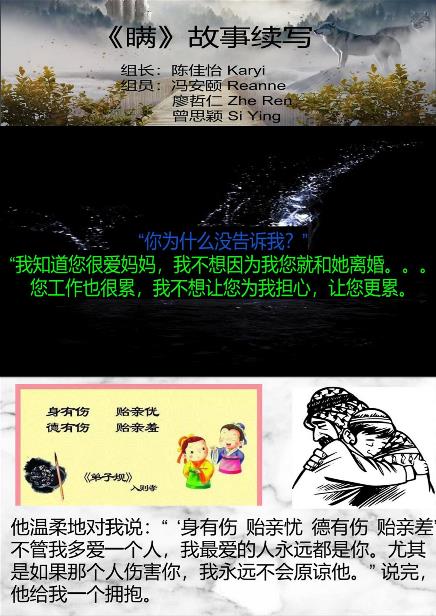
Images from students’ picture books inspired by the teachings of DiZiGui
Through presentations, skits, making picture books, posters and in-depth research, CCHY tries to inculcate in their students a greater appreciation for their Mother Tongue languages – all these interactive activities aim to give the students a deeper insight into the culture and heritage of their Mother Tongue Languages, while appreciating the language, literature and culture at the same time.
For the Humanities’ group work, History teachers developed a peer-led set of assessment rubrics to ensure all students were motivated to contribute equally. Subject Head of History, Ms Manvinder Kaur, explains, “Unlike individual tests or graded assignments where it was easy to assess individual students’ learning, the projects on board games were collaborative, and it was challenging at times to assess the learning and contributions made by individual students.
“We included individual tasks in the documentary project to ensure each student had participated and contributed. But despite how time-consuming it was for the teachers to give multiple rounds of feedback to the video editing, they were willing to invest their time in this when they saw how motivated their students were. In fact, the students’ enthusiasm was infectious!
After the sheer amount of hard work and creativity, when the students shared that they found History lessons exciting and looked forward to their lessons, or they wanted to take up History at the upper Secondary level, we knew this was time well spent – for both students and teachers.”
Tips for other schools
Changing teachers’ mindsets to deviate from tried-and-tested formulae that had worked in the past was always going to be a challenge. Vice-Principal Mr Chang Fook Yong adds, “Most of the teachers were not comfortable in spending so much time on guiding students through projects and would rather spend time teaching. To overcome this, the rationale behind the projects was explained… so that teachers could approach this as another form of teaching.”
But because the various Heads of Instructional Programmes were able to have autonomy to work with their teachers and decide on the type of activity according to the class and cohort needs, they welcomed the opportunity. After all, this meant teachers could, firstly, customise their assessment according to class needs. Secondly, focus more on using assessment to provide feedback and encourage students’ reflection. And lastly, free up time to leverage on pedagogy for more engaged learning.
Vice-Principal Chang concludes. “Our teachers are now more convinced, after observing their students, how much richer their students’ learning is, as compared to the usual daily lessons.”

